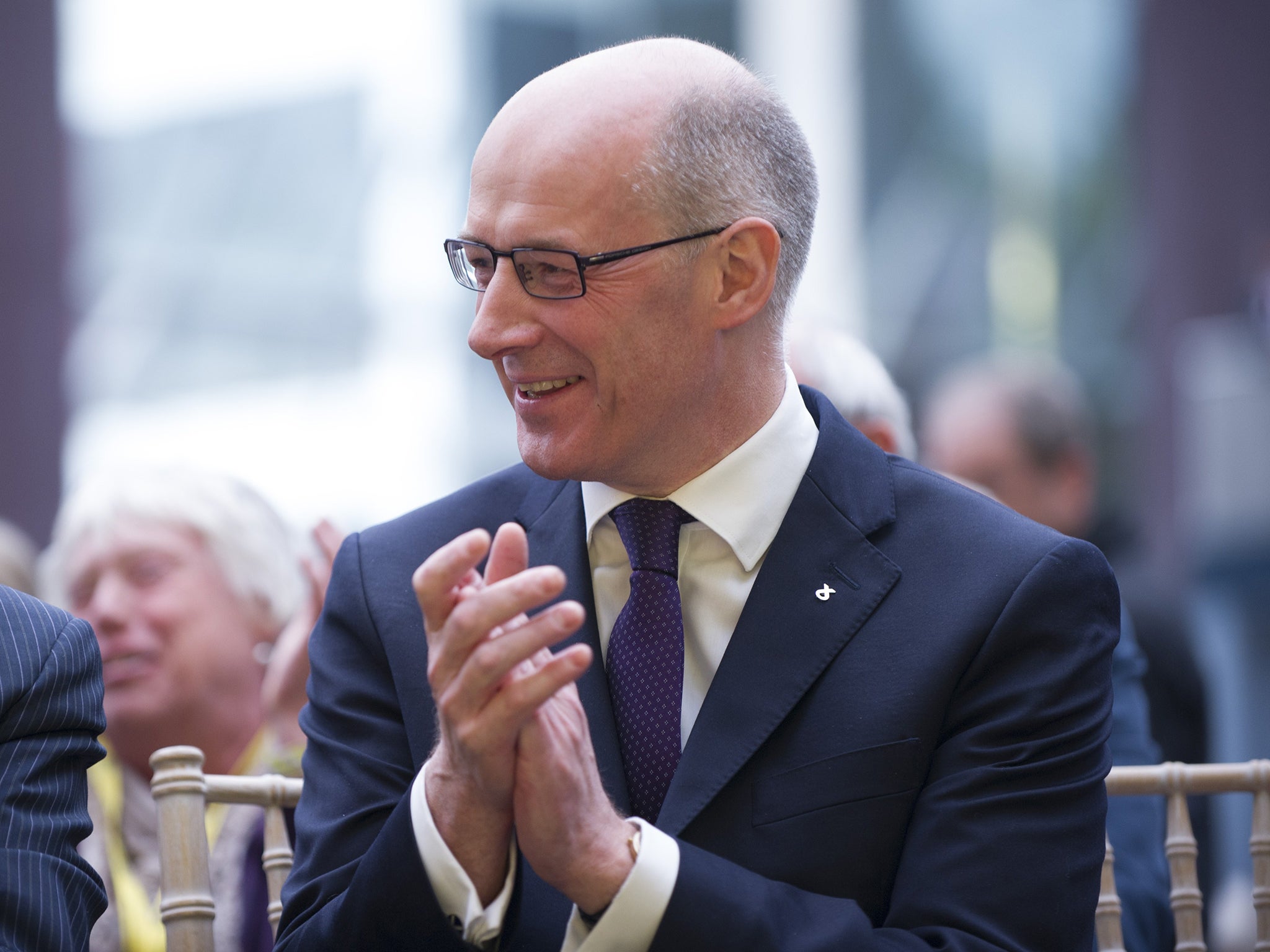Scotland could raise taxes to cancel cuts’ impact, says Deputy First Minister
Scotland's budget is set to be trimmed by £107m this financial year

Your support helps us to tell the story
From reproductive rights to climate change to Big Tech, The Independent is on the ground when the story is developing. Whether it's investigating the financials of Elon Musk's pro-Trump PAC or producing our latest documentary, 'The A Word', which shines a light on the American women fighting for reproductive rights, we know how important it is to parse out the facts from the messaging.
At such a critical moment in US history, we need reporters on the ground. Your donation allows us to keep sending journalists to speak to both sides of the story.
The Independent is trusted by Americans across the entire political spectrum. And unlike many other quality news outlets, we choose not to lock Americans out of our reporting and analysis with paywalls. We believe quality journalism should be available to everyone, paid for by those who can afford it.
Your support makes all the difference.The Holyrood Government could raise taxes to cancel out the impact of spending cuts in Scotland, the Deputy First Minister has said.
John Swinney signalled that the administration was considering the move as an SNP delegation emerged from talks with Chancellor George Osborne.
Scotland’s budget is set to be trimmed by £107m in this financial year as part of a £3bn squeeze on UK-wide government spending.
Asked if he would rule out any tax increases next year to fill the gap, Mr Swinney replied: “What we will consider – and I stress the word consider – is how we can best take forward the investment in our public services given the fact we have had a further reduction in the budget [than] we expected.”
The cut could be deferred for a year to coincide with a move in 2016 to raise income tax. A one penny increase in income tax in Scotland would raise some £330m. Next year Holyrood will receive the power to vary income tax by up to 10p in the pound.
In the Treasury meeting, Mr Swinney said the proposed cut was “too bitter a pill to swallow”. “I made it clear it is completely unacceptable for reductions to be imposed in this financial year to the budget that has already been agreed by the Scottish Parliament.
“I also set out that we will continue to argue for an end to austerity and a credible economic alternative that could see an additional £93bn investment across the UK in the next four years that still meets UK fiscal targets.”
In the Commons yesterday, David Mundell, the Scottish Secretary, introduced the Bill which will transfer extra powers over tax and welfare to Edinburgh. He insisted it would deliver in full the Smith Commission proposals agreed by the main Scottish parties after last year’s referendum.
Mr Mundell said it represented a “very stable settlement for Scotland”. He said: “The fact this bill was introduced on the first day after the Queen’s Speech and that this debate is taking place on the first day since the general election speaks volume for the determination to honour that manifesto commitment.”
Subscribe to Independent Premium to bookmark this article
Want to bookmark your favourite articles and stories to read or reference later? Start your Independent Premium subscription today.
Join our commenting forum
Join thought-provoking conversations, follow other Independent readers and see their replies
Comments